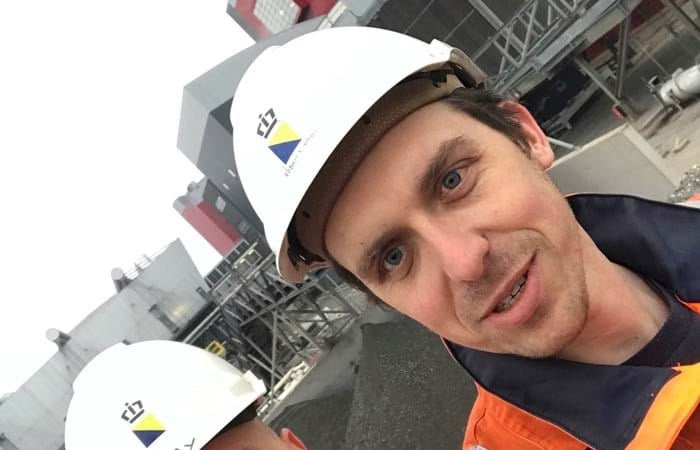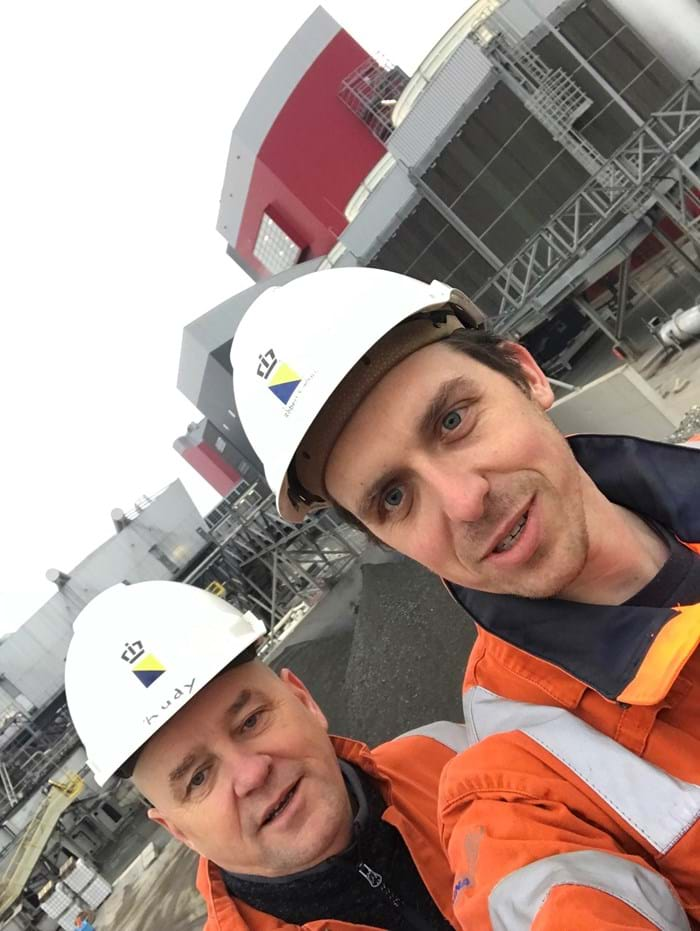"If you do not share information, they do not feel part of the group/the collective. Their involvement has a positive effect on the whole project. As leaders we should be the initiators in this respect."
They call themselves a ‘boring’ pair of interviewees: Rudy Driessen and Robert Simons. “Because we always agree on everything.” And sure enough, during the hour-long interview about their vision on safety they continuously agree with each other. Only once Rudy answers a question with a wholehearted “no”, while Robert says “yes”. More on that later. Let's get acquainted with these two colleagues first.
Rudy has worked with Boskalis since 1989. Having started out as an Operator, he saw much of the world, the highlight being a twelve-year stay in the United States. After studying civil engineering, Robert stepped across the threshold in Papendrecht 24 years after Rudy. Now they are working side by side in Alkmaar. Their unanimity seems to be the key to success of the project in general and its safety in particular.
EMPATHY
Rudy and Robert have the same accessible, open attitude in the workplace. They both look for the human being behind the employee and have a practice-based approach to safety. Their leadership is based on these values. According to Rudy, this is a result of his own background: “I know what it's like to be out there, all day long in all kinds of weather, fixing things that get broken. As a supervisor, being able to see it from their perspective is important.” He didn't have to teach Robert this, he says: “Robert is empathic by nature, but I have also known some guys who base everything on theory and put paperwork first.”
COMMUNICATION
Both value good communication, just practical, from man to man, at the moment when it is needed. “When I see someone is standing too high up on a ladder, I'd rather tell him right away than write him a SHOC card.” Robert does the same, though there are differences. “I am someone who wants to keep the harmony and because of that, I sometimes avoid difficult conversations. Rudy knows how to confront people directly and clearly and I admire that. That is what I can learn from him.” They are convinced that good communication leads to stronger involvement. “If you do not share information, they do not feel part of the group/the collective. That is why we update them on decisions that have been taken, we involve them in the disposal of materials, etcetera.” Robert nods. “We do this every day, in between activities. Also about matters that they have come up with; that way, they know they are being listened to. This involvement has a very positive effect on the whole project.”
YES AND NO
Finally, the question that got both a “yes” and a “no”: Does the young guard have a different approach to safety than the old guard? “No.” “Yes.” “Someone starting work now will do the same stupid things than someone who started work 15 years ago. Safety is not ingrained.” “I agree with you that they do the same stupid things, but I do not agree that safety is not ingrained. If I hear what people did twenty years ago! You’d be fired if you did these things now.” “Yes, that’s true. In the old days, you would be called a wimp or you would be told off for saying you found something unsafe. To give an example, in the early nineties we had to install an installation at De Slufter. The installation arrived on a pontoon, in the middle of winter, and it was coated in black ice. The supervisor ordered me to climb onto it to attach it. I said: “I won't do it.” To which the supervisor said: “Then you will leave the work site and report to the office.” I did and was reprimanded by the managing director at that time, for refusing work. After hearing my story he did support me in the end, but I was on my own at first. Now you feel supported from day one and if you do not agree to something you have a discussion on how it could be done safer.” So Rudy and Robert agree also on this in the end. “That's how it always goes", Robert says with a smile.

